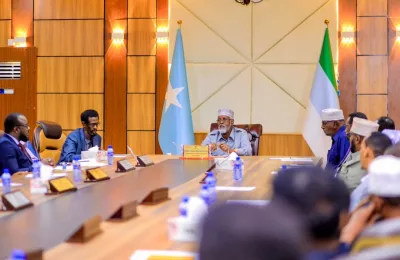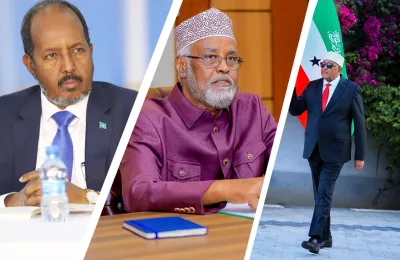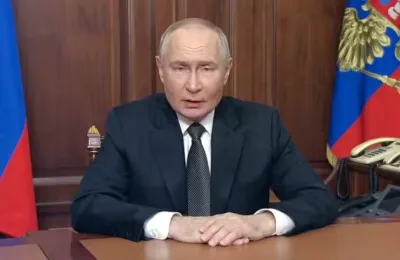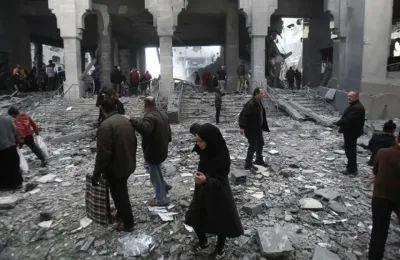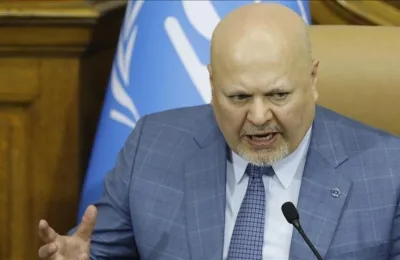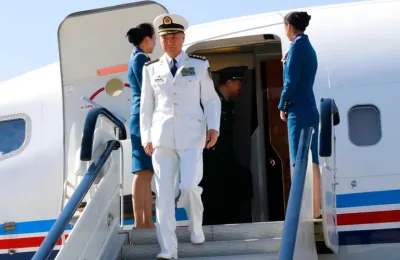The possibilities of wining ‘Nigeria decides campaign’’ was major concerns for many African political commentators as…
 The possibilities of wining ‘Nigeria decides campaign’’ was major concerns for many African political commentators as well as the political research centres in the west, it also dominated media coverage across continent for last three months, fortunately I was one of those closely observed the elections that are taking place Africa’s the most populous nation and its biggest economy.
The possibilities of wining ‘Nigeria decides campaign’’ was major concerns for many African political commentators as well as the political research centres in the west, it also dominated media coverage across continent for last three months, fortunately I was one of those closely observed the elections that are taking place Africa’s the most populous nation and its biggest economy.
Now Nigeria decided and showed rest of the world for its capabilities of conducting free and fair elections with less violence’s despite expectations of many pessimist inside Nigeria itself and outside .I agree of course there was difficulties which could disturb any time for the electoral process including increasing threats of Boko haram militants, ethnic and religious diversity of Nigerians, fragile security condition. Obviously these factors caused delay of elections for almost eight weeks but failed to dismiss the decision of Nigerians and their commitment to democratic elections. I’ didn’t wrote this article to congratulate Nigeria the Africa’s Face as Nigerian Minister of Finance Ngozi Okonjolweala said ‘if you are not in Nigeria you are not in Africa’’ but when the Nigerian Electro-commission (INEC) announced the final results of the elections in which the opposition leader Mahamadu Buhari defatted his rival the incumbent president Goodluck Jonathon I went further more and immediately some questions emerged to my mind which was; What lessons can Somalia learn this big Event? And is there any possibilities for applying the Nigerian Approach of Elections in 2016?
Firstly Somalia can learn essential lessons from this Nigerian experiment of holding Elections at hard and sensitive times in which slight mistake would cause enormous National worries if it not cause state collapse at large context. It’s true that many people believe the comparison between Somalia and Nigeria is not logic, and some may to claim that Nigeria have mature democracy since the end of military rule in 1999, strong institutions specially (parliament and constitutional courts) and biggest African economy while Somalia is vice-verse country that was lawless for last two decades, massive destruction of institutions, and luck of political consciousness among Somali political actors,
But the current circumstance of both countries have similarities in terms of terrorism, violence, and political division other facts in Nigeria indicates the following;
- 60% of Nigerians live under extreme poverty,
- High level of inequality
- More than 50% of the population have no access to electricity and clean water.
- There is continuous violence between the government and Boko haram militants group in the north-eastern regions which resulted the displacement of 3million people and damaged infrastructure and communication.
In spite of all these realities they decided to hold their democratic fair elections which resulted for the first time in Nigerian History that an opposition party has democratically taken control of the county from ruling party. So Why not for Somalia? Especially at the time that Alshabaab militant weakened militarily and morally, large swathes of the territory controlled by either Federal Government or Administrations that are under Federal Government like (Puntland State, Southwest state and Juba Administration). Other crucial lesson in here is there is gigantic likelihood of holding fair Elections for countries similar to our own as previously materialized such experiments other countries like Afghanistan and Mali last year.
Recently Somali Federal Government is busy to realise the 2016 vision in which its main theme is holding fair elections but most of Political figures have already demonstrated their doubt towards the realization of 2016 vision due to slow operative for prime minister Sharmake’s Government, absence of political dialogue among Somali’s political elites, apathy and coolness of the villa Somalia (presidency institution) for the issue. With recognition of all these existing obstacles still I believe that there is possibilities to apply the Nigerian approach for elections if we decide as Nigerians and work together for the remaining 17months.The events similar to this Nigerian approach could motivate us to move and shape on our own way of holding democratic election in 2016 or at least to attempt in order to stabilize the increasing political tension in the country and complete transitional period successfully.
In conclusion Somalia has several chances to hold fair democratic elections in September, 2016 including to this Nigerian Approach, or any other modern electro-model that suites post Conflict County with limited resources and expertise like Proportion Representation (PR) the view that Somali Forum of Unity and Democracy the largest coalition of political parties and actors in the country proposed to Prime Minister Sharmarke last week but then our problem is disinterest of Federal leaders to the increasing public demands and ignoring the views other stakeholders.
About the author
Mohamoud Abdikadir Shire
Freelance Writer, and Social Reformist who spent years for Advocating Modern Styles of Governance, Rule of law, participation of youth and Women in decision making processes, and Respect of human rights lives In Gardo, Puntland, Somalia
Email: mshire71@gmail.com


